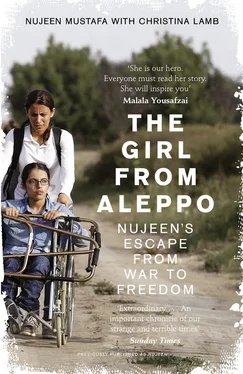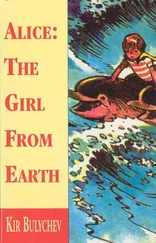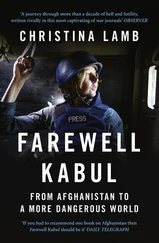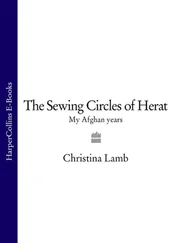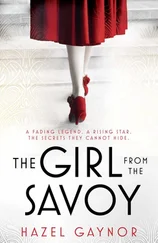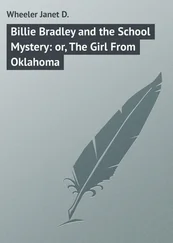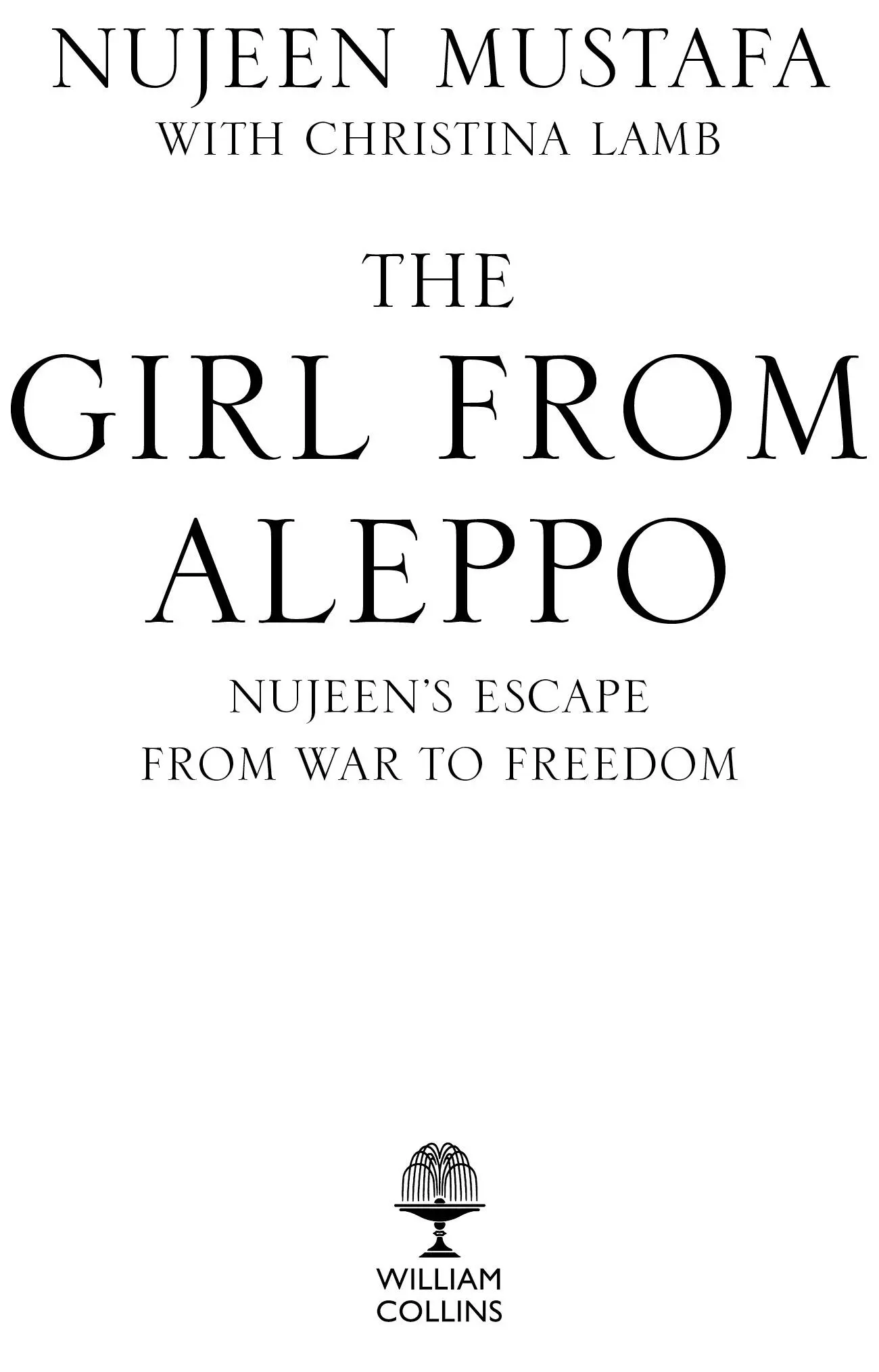
William Collins
An imprint of HarperCollins Publishers
1 London Bridge Street
London SE1 9GF
WilliamCollinsBooks.com
This eBook first published in Great Britain by William Collins 2016
Copyright © Christina Lamb and Nujeen Mustafa 2016, 2017
Christina Lamb and Nujeen Mustafa assert the moral right to be identified as the authors of this work
A catalogue record for this book is available from the British Library
Cover photograph © STR/AFP/Getty Images
Interior images from the Mustafa family collection unless otherwise attributed
Map by Martin Brown
All rights reserved under International and Pan-American Copyright Conventions. By payment of the required fees, you have been granted the non-exclusive, non-transferable right to access and read the text of this e-book on-screen. No part of this text may be reproduced, transmitted, down-loaded, decompiled, reverse engineered, or stored in or introduced into any information storage and retrieval system, in any form or by any means, whether electronic or mechanical, now known or hereinafter invented, without the express written permission of HarperCollins.
Source ISBN: 9780008192815
Ebook Edition © September 2016, 2017 ISBN: 9780008192792
Version: 2017-02-23
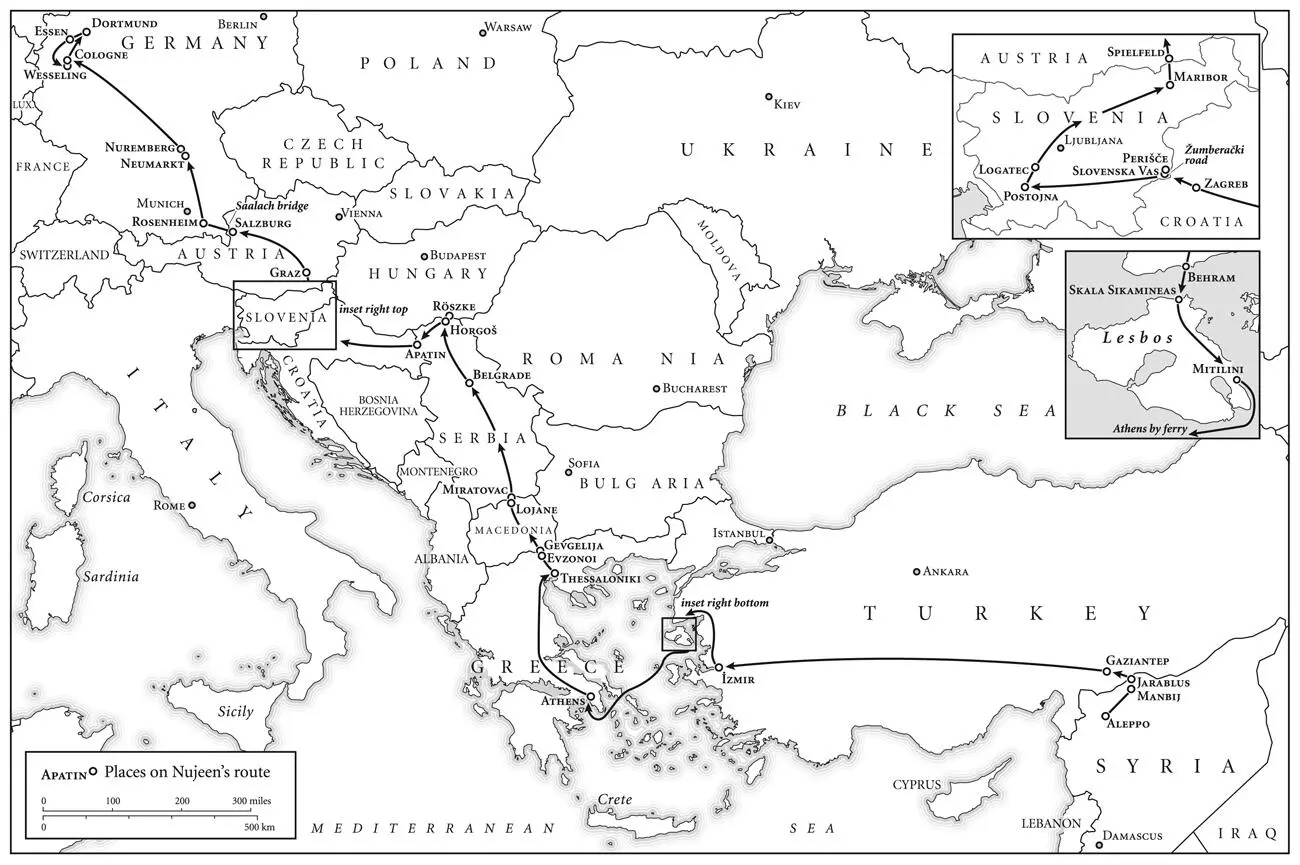
I see Earth! It is so beautiful.
Yuri Gagarin, first man in space, 1961
Cover
Title Page
Copyright
Map
Epigraph
Prologue: The Crossing
PART ONE: To Lose a Country
1 Foreigners in Our Own Land
2 The Walls of Aleppo
3 The Girl on TV
4 Days of Rage
5 A City Divided
6 A War of Our Own
7 Gone with the Wind
8 Forgive Me, Syria
PART TWO: The Journey
9 Widen Your World
10 In Search of a People Smuggler
11 The Route of Death
12 Freedom like a Normal Person
13 Through the Beautiful Gate
14 Hungary, Open the Door!
15 The Hardest Day
16 The Sound of Music
17 Thank You, Mama Merkel
PART THREE: A Normal Life
18 Foreigners in a Foreign Land
19 A Schoolgirl at Last
20 A Scary New Year
21 A Place Called Home
Postscript: The Only Candle
Appendix: My Journey
Picture Section
Acknowledgements
Index
Unicef
About the Authors
About the Publisher
Behram, Turkey, 2 September 2015
From the beach we could see the island of Lesbos – and Europe. The sea stretched either side as far as you could see and it was not rough, it was quiet, flecked only by the smallest of white caps that looked as if they were dancing on the waves. The island did not look too far off, rising from the sea like a rocky loaf. But the grey dinghies were small and low in the water, weighed down with as many lives as the smugglers could pack in.
It was the first time I had seen the sea. The first time for everything – travelling on a plane, in a train, leaving my parents, staying in a hotel and now going in a boat! Back in Aleppo I had barely ever left our fifth-floor apartment.
We had heard from those who had gone before that on a fine summer day like this with a working motor a dinghy takes just over an hour to cross the strait. It was one of the shortest routes from Turkey to Greece – just 8 miles. The problem was that the motors were often old and cheap and strained for power with loads of fifty or sixty people, so the trips took three or four hours. On a rainy night when waves reached as high as 10 feet and tossed the boats like toys, sometimes they never made it at all and journeys of hope ended in a watery grave.
The beach was not sandy as I had imagined it would be but pebbly – impossible for my wheelchair. We could see we were in the right place from a ripped cardboard box printed with the words ‘Inflatable Rubber Dinghy; Made in China (Max Capacity 15 Pax)’, as well as a trail of discarded belongings scattered along the shore like a kind of refugee flotsam and jetsam. There were toothbrushes, nappies and biscuit wrappers, abandoned backpacks and a slew of clothes and shoes. Jeans and T-shirts tossed out because there was no room in the boat and smugglers make you travel as light as possible. A pair of grey high-heeled mules with fluffy black pom-poms, which seemed a crazy thing to have brought on this journey. A child’s tiny pink sandal decorated with a plastic rose. A boy’s light-up trainers. And a large grey floppy bear with a missing eye that must have been hard for someone to leave behind. All the stuff had turned this beautiful place into a rubbish dump, which made me sad.
We had been in the olive groves all night after being dropped off on the cliff road by the smuggler’s mini-bus. From there we had to walk down the hill to the shore which was about a mile. That may not sound much but it feels a very long way in a wheelchair over a rough track with only your sister to push and a fierce Turkish sun beating down and driving sweat into your eyes. There was a road zigzagging down the hill which would have been much easier, but we couldn’t walk along that as we might be spotted and arrested by the Turkish gendarmerie who could put us in a detention centre or even send us back.
I was with two of my four elder sisters – Nahda, though she had her baby and three little girls to handle, and my closest sister Nasrine who always looks after me and is as beautiful as her name, which means a white rose that grows on the hills of Kurdistan. Also with us were some cousins whose parents – my aunt and uncle – had been shot dead by Daesh snipers in June when they went to a funeral in Kobane, a day I don’t want to think about.
The way was bumpy. Annoyingly, Nasrine pulled the wheelchair so I was facing backwards and only got occasional glimpses of the sea, but when I did it was sparkling blue. Blue is my favourite colour because it’s the colour of God’s planet. Everyone got very hot and bothered. The chair was too big for me and I gripped the sides so hard that my arms hurt and my bottom got bruised from all the bumping, but I didn’t say anything.
As with everywhere we had passed through I told my sisters some local information I had gathered before we left. I was excited that on top of the hill above us was the ancient town of Assos which had a ruined temple to the goddess Athena and, even better, was where Aristotle once lived. He’d started a school of philosophy overlooking the sea so he could watch the tides and challenge the theory of his former master Plato that tides were turbulence caused by rivers. Then the Persians attacked and made the philosophers flee and Aristotle ended up in Macedonia as tutor to a young Alexander the Great. St Paul the apostle also passed through on his own journey to Lesbos from Syria. As always my sisters didn’t seem very interested.
I gave up trying to inform them and watched the seagulls having fun gliding on thermals and making noisy loops high in the blue, blue sky, never once stalling. How I wished I could fly. Even astronauts don’t have that freedom.
Nasrine kept checking the Samsung smartphone our brother Mustafa had bought us for the journey to make sure we were following the Google map coordinates given to us by the smuggler. Yet, when we finally got to the shore, it turned out we were not in the right place. Every smuggler has their own ‘point’ – we had coloured strips of fabric tied round our wrists to identify us – and we were at the wrong one.
Читать дальше
